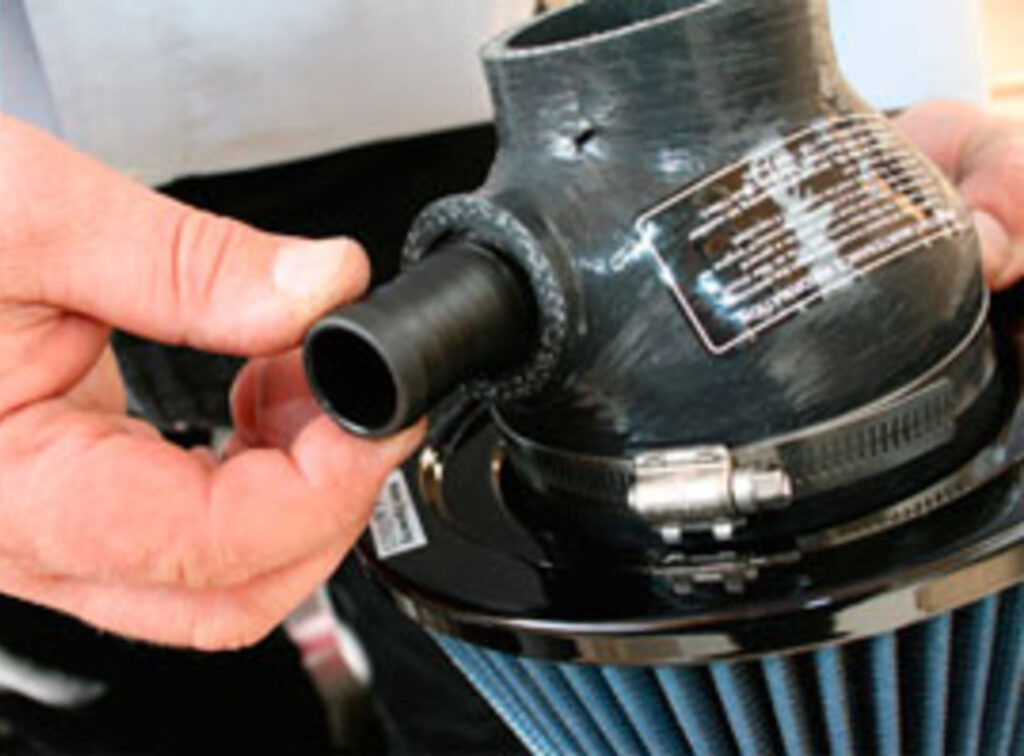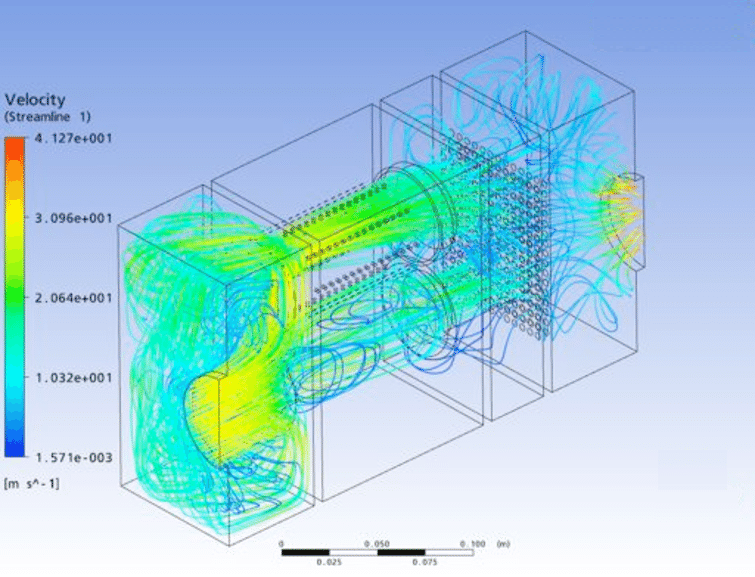The air compressor noise levels are measured in decibels. The louder the sound is, the higher the decibels are. Decibels can damage your hearing at a certain point. To understand how important it is to make your air compressor quieter, we need to know how loud they are.

Contents
- 1 Introduction to the air compressor
- 2 How to make an air compressor quieter?
- 2.1 1. The air intake should be moved
- 2.2 2. Make sure you use an intake silencer
- 2.3 3. Build a soundproof box
- 2.4 4. Put the compressor in a different room
- 2.5 5. Try rubber gaskets
- 2.6 6. Hearing protection can be used
- 2.7 7. Invest in the quieter air compressors
- 2.8 8. Make sure the air filters are cleaned
- 2.9 9. Make sure to lubricate the bearings
- 3 FAQs
- 4 Conclusion
Introduction to the air compressor
There are different types of air compressors:
- Centrifugal compressors are used for compressor jobs. Fluid is passed through the compressor with an impeller. This increases velocity, which in turn increases pressure within the device.
- Regardless of whether you call them gas, axial, or turbo compressors, this unit uses an airfoil to create gas pressure via rotation.
- Scroll compressors move in a circular motion. They can move refrigerant and air into an air conditioning system.
- Compressors with rotary vanes include vanes that allow the rotor to move within its cavity.
- This air or gas compressor is a positive-displacement unit that can achieve very high air pressure volume. You can find a rotary screw air compressor using an impact wrench or a jackhammer.
- Compressors with several cylinders are called compound compressors. The first cylinder contains air that gets compressed and then cools down. Then, it moves on to another cylinder, where it gets compressed further.
- If air is compressed only once, then it is considered a single-stage reciprocating compressor.
- If the air is compressed through an intercooler and then compressed further, the unit used is a two-stage reciprocating compressor.
They all have similar performance characteristics:
- CFM is the measurement of the delivery of air from the compressor.
- SCFM refers to the standard cubic feet per minute. This is just the standard CFM. CFM is far more common on air compressor packaging than SCFM.
- The horsepower of an air compressor’s motor is the amount of power it has. The lowest and highest HP of most motors are 1.5 and 6.5, respectively. Higher HP compressors may be louder.
- Additionally, there are pounds per square inch or PSI. The PSI can affect the CFM by making it higher or lower.
There are 3 broad categories of air compressors: high-pressure air compressors with discharge pressures above 1000 PSI, medium-pressure compressors with a more variable discharge pressure from 151 PSI to 1000 PSI, and low-pressure air compressors.

Positive displacement compressors take in air, compress it, and then transport it into a chamber. Afterward, the air exits the chamber and enters the outlet. There are examples of vane compressors, rotary screw compressors, and two-stage reciprocating compressors.
Air compressors are not quite to power the devices they do. You might find that your compressor is capable of delivering 40 decibels. The larger, heavier units can reach more than 90 decibels.
At that level, hearing damage becomes a risk. Hearing damage can be caused by items that are between 80 and 90 decibels. You could lose your hearing early if you run your noisy air compressor often enough, but it won’t happen overnight.
The frequency of the compressor is another factor in determining the compressor noise levels. Dynamic displacement air compressors have a lot more friction.
A positive displacement compressor has fewer moving components and is therefore less friction-heavy. That would make a quieter air compressor.
The main causes of noise are:
- When the air compressor vibrates, it vibrates against the surface it is on. The impact noise is produced by the vibrating material. Hard surfaces, like hardwood or concrete floors, reflect the vibrations stronger.
- To minimize this sound, the easiest thing to do is to place the compressor on a soft and thick surface. A few layers of blankets or a thick rug could be used. The best way to reduce noise is to use an anti-vibration rubber mat.
- A thinner and lower-quality structure will cause the compressor to vibrate more. It’s worth considering when buying a compressor in the first place because the structure itself is not the primary reason for AC noise.
- If it’s light, it will vibrate more unless other components are designed to be quieter than normal. Larger air compressors can have a larger output. They also have a more powerful and louder air compressor motor.
- The level of sound they produce is determined by the design, the quality of the material, and whether the air compressor has been designed to be a quiet air compressor or not.
- The compressor makes most of the noise when it draws air through the filter. This is the loudest component of most air compressors. This air outlet valve ranks second in terms of noise.
How to make an air compressor quieter?
1. The air intake should be moved
It is worth moving the air intake outside since it is one of the loudest parts of the compressor. If you have a portable compressor, you only need an extension cord and a longer hose.
You will avoid dealing with the noise of the air compressor inside by moving the compressor outside your shop or garage. When there are no obstructions for the sound waves to bounce off, the noise will dissipate. You will have to deal with less noise if you are further from the compressor.
Plumbing and a remote intake filter can be installed outside. It is a bit of work to reduce the noise from the air intake, but it will do the trick.
2. Make sure you use an intake silencer
An air intake silencer is an easier option to reduce your air compressor noise. Sometimes called an air intake muffler, these little parts are great at making air intake noise less loud.

Air filters are used to remove dirt, dust, and other particles from the air that enters your engine. Noise-dampening materials are used to pull air through the compressor to eliminate some of the noise.
It is important to make sure that the intake muffler is compatible with your compressor. This includes the filter model and the screw thread size of the filter. It is recommended that you get a larger filter than is recommended for your compressor, as this will damage it.
3. Build a soundproof box
A soundproof box is a good idea if you want to do a project with a loud compressor. Other websites recommend buying a soundproof box, but this isn’t the best idea.

Compressor engines are extremely hot, so putting them in a box without proper ventilation is asking for an overheated compressor. It’s possible to build a soundproof box for your compressor for cheap. To make sure your compressor doesn’t get overheated, you can modify a soundproof box with a fan.
For some people, the cost and time these take may not be worth it. This project is ideal for those who enjoy building things and are looking for a fun project that will help them silence their air compressor in the process.
4. Put the compressor in a different room
The soundproof box above has a similar concept. If you can place your compressor in a different room and are willing to spend a few dollars on sound-deadening materials, then you may have an easy solution.

It could be an empty garage closet with doors that you can modify with a simple airflow fan and some soundproofing material. If the cabinet is large enough, you may not even need a fan to keep the compressor from overheating.
5. Try rubber gaskets
Rubber material is an excellent material for reducing vibrations from an air compressor. Rubber grommets, such as these, can be used to reduce noise, and when used correctly, they can help to absorb vibrations that would otherwise be transmitted from the design of the compressor.
You can use rubber pads if you have a compressor that sits on the ground. If you’re keeping the compressor on concrete or other hard material, a little extra padding between the floor and the feet can help keep the noise down.
6. Hearing protection can be used
Some people don’t consider wearing hearing protection when using an air compressor. This can silence the compressor itself, but it can help your ears while you’re working.
A set of ear muffs or earplugs can help turn a loud compressor noise into a quiet background hum, as well as implement one or more of the tips on this list.
7. Invest in the quieter air compressors
Those who are looking for a compressor but are worried about the noise it will make should use this tip. Fortunately, there are quieter compression options available.
No compressor is completely silent at all. Remember that you will always have to deal with a certain level of noise when using a compressor.
8. Make sure the air filters are cleaned
Dirt particles can be trapped in air filters. Their main purpose is to trap dirt that comes in through the air intake valve. But filters are not self-cleaning.
Upon a period of use, they must be unclogged. If the dirt isn’t removed, it may clog the system, impeding the compressor’s performance.
Furthermore, it will prevent atmospheric air from entering cylinders. The noise can be increased further by this. It is therefore necessary to unclog the filters.
It is usually sufficient to do it once a year for regular maintenance. You should unclog the air compressor more often (once every 6–8 months) if you use the air compressor often.
9. Make sure to lubricate the bearings
The air compressor has many moving parts that need to be lubricated to work well and quietly. Particularly, the bearings need to be lubricated occasionally. It is not necessary to grease the bearings too much. You could make the motor run with more difficulty because of the clog up bearings. The grease on the bearings should be good.
FAQs
How do you fix a loud air compressor?
You can make your air compressor quieter by lubricating the bearings, cleaning the filters, investing in a quiet compressor, hearing protection, and a rubber gasket.
Why are air compressors so noisy?
Air compressors make noise for several reasons. Whenever the air compressor vibrates, it will vibrate against the surface it is on. The sound level of a compressor depends on the design, the quality of the material, and whether it has been designed to be quiet or not.
What makes a quiet air compressor quiet?
It depends on the materials used in the compressor. If you’re looking for quiet air compressors, the electric is generally the better option. You can always find options for quiet compressors on the market.
Conclusion
Air compressors are great for home, but can be very noisy. If you use your air compressor frequently, you can cause noise damage to your hearing. This article will help you understand and reduce loud noise.


I also want to add that if it is not possible to take the compressor outside, then it is important to place it correctly so that the noise level is minimal. Do not place the compressor near the wall (especially in the corner of the room). The best option is in the middle of the room, on a special concrete platform. When placed in the corner of the room, the sound that the compressor produces will be maximized. Reflected from two surfaces, sound waves will be amplified even more.